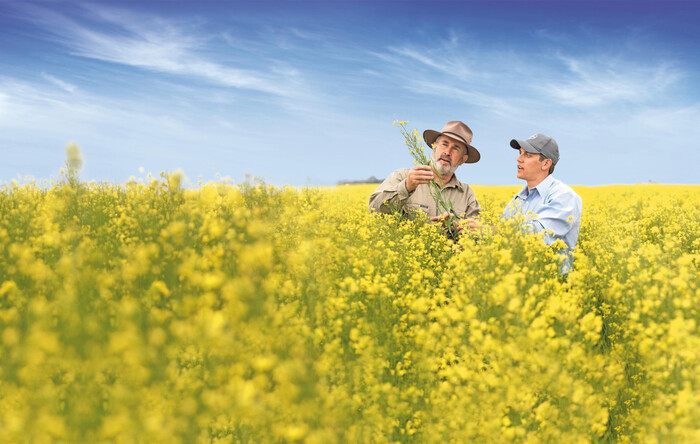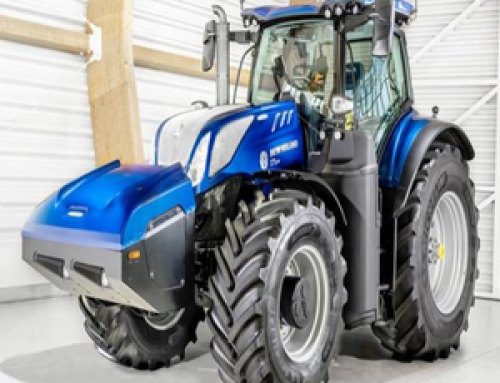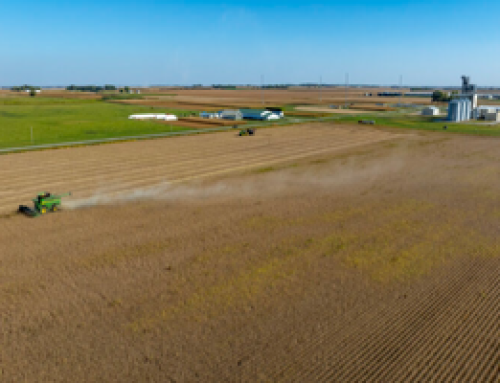 |
|---|
| Bayer and Neste plan to jointly scale winter canola as a biomass-based feedstock for renewable products like biofuels. |
Source: Bayer news release
Monheim, Germany – Bayer and Neste, a leading producer of sustainable aviation fuel and renewable diesel, today announced that they have signed a memorandum of understanding (MOU) to jointly scale winter canola as a biomass-based feedstock for renewable products like biofuels. Within the collaboration, the companies are going to develop a winter canola ecosystem in the Southern Great Plains of the US, including product development and additional collaborations to enable Bayer to enter this market.
“Renewable fuels are playing an important role in the decarbonization of transportation and energy while global targets continue to shape biofuel markets and accelerate demand for biomass-based feedstocks going forward,” said Frank Terhorst, Head of Strategy & Sustainability for Bayer’s Crop Science Division. “We are committed to supporting farmers’ ability to deliver low-carbon feedstocks on demand, through investments in new crops like winter canola and advancements in sustainable cropping systems.”
Bayer aims to launch hybrid TruFlex winter canola in 2027. It offers many benefits to farmers as it includes Roundup Ready and pod shatter resistance technology, delivering excellent product stability and performance. Used as a new alternative rotational crop, winter canola helps sequester carbon in the soil and can improve soil health by increasing its organic matter content and water-holding capacity, leading to enhanced soil fertility and productivity.
“We are excited to partner with Neste to enable profitable new crop options for farmers, while delivering on the unmet demand for renewable fuel,” said Jennifer Ozimkiewicz, Head of Crop Strategy Soy & Biofuels at Bayer’s Crop Science Division. “We believe our next generation TruFlex products will provide farmers a new profitable rotational crop option, while offering potential sustainability benefits such as increased biodiversity, soil health and agronomic rotation to reduce pest, disease and weed pressure. Bayer is committed to continue to lead the way with alternative biomass-based feedstocks and regenerative agricultural solutions.”
Leading up to launch, Bayer will work with Neste, the value chain, and farmers to introduce winter canola as a biomass-based feedstock that delivers fuel with lower carbon intensity than traditional fuel sources. Bayer and Neste expect to finalize a definitive agreement in 2025.
“This collaboration with Bayer strengthens our strategy to develop together with value chain partners regenerative agriculture concepts that can be scaled up and can play an important role in diversifying and growing the raw materials pool for all of our renewable products,” said Artturi Mikkola, Senior Vice President Feedstock Sourcing & Trading at Neste. “We believe winter canola can bring environmental benefits to cropping systems and result in lower carbon intensity feedstocks that help replace fossil resources with renewable raw materials.”
Renewable fuels play a key role in decarbonizing the transportation sector as electrification will take time in the hard-to-abate sectors, such as aviation. Renewable fuels have a lower carbon intensity than fossil fuels and can significantly reduce greenhouse gas emissions over the life cycle compared to traditional fossil fuels, playing a key role in mitigating climate change. On top, they can provide farmers with new revenue streams through the cultivation of biomass-based feedstocks.
About Bayer
Bayer is a global enterprise with core competencies in the life science fields of health care and nutrition. In line with its mission, “Health for all, Hunger for none,” the company’s products and services are designed to help people and the planet thrive by supporting efforts to master the major challenges presented by a growing and aging global population. Bayer is committed to driving sustainable development and generating a positive impact with its businesses. At the same time, the Group aims to increase its earning power and create value through innovation and growth. The Bayer brand stands for trust, reliability and quality throughout the world. In fiscal 2023, the Group employed around 100,000 people and had sales of 47.6 billion euros. R&D expenses before special items amounted to 5.8 billion euros. For more information, go to www.bayer.com.
About Neste
Neste (NESTE, Nasdaq Helsinki) uses science and innovative technology to transform waste and other resources into renewable fuels and circular raw materials. The company creates solutions for mitigating climate change and accelerating a shift to a circular economy. Being the world’s leading producer of sustainable aviation fuel (SAF) and renewable diesel and a forerunner in developing renewable and circular feedstock solutions for polymers and chemicals, the company aims to help its customers to reduce their greenhouse gas emissions by at least 20 million tons annually by 2030.
The company’s ambition is to make the Porvoo oil refinery in Finland the most sustainable refinery in Europe. Neste is committed to reaching carbon-neutral production by 2035 and will reduce the carbon emission intensity of sold products by 50 percent by 2040. Neste has also set high standards for biodiversity, human rights and the supply chain. The company has consistently been included in the CDP and the DJSI lists of the world’s most sustainable companies. In 2023, Neste’s revenue stood at EUR 22.9 billion. Read more: www.neste.com




